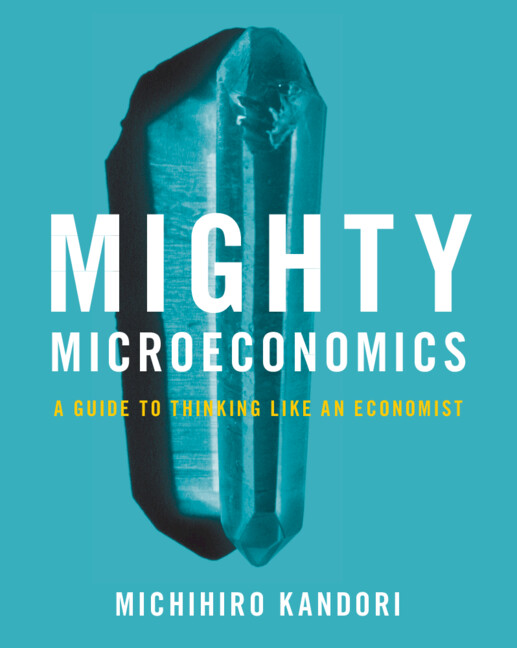Mighty Microeconomics
Economics helps us to understand that certain slick mechanisms are operating beyond what we see in our daily economic lives. To fully understand and appreciate these mechanisms, we need to master the core mathematical theories, some of which are highly advanced and typically covered in a graduate course. This textbook presents those theories without compromising rigor, but, at the same time, the author offers a number of innovative pedagogical twists that make the difficult materials completely accessible to undergraduate students, and even to general readers. Written in a chatty, colloquial style, the author explains basic messages and core insights that are usually hidden between the lines. The usefulness of these theories is shown through a number of real-life examples, and, in the end, the readers can see that the mathematical models provide deep insights into social justice and philosophy. This book helps readers to think like an economist.
- Demonstrates to students the practical relevance of highly technical theories through their application to a number of convincing real-life case studies
- Helps students overcome their anxiety of mastering mathematical analyses by providing intuitive, easy-to-understand, rigorous and self-contained explanations for all mathematical concepts and theories
- Deepens students' understanding of the use of mathematical theories in microeconomics through persuasive explanations and motivations for abstract assumptions and formulations
Reviews & endorsements
‘Mighty Microeconomics combines precise arguments, compelling applications, and deep reflection on the problems of the modern age. It takes students on an unforgettable intellectual journey to make them better citizens who can understand and participate in the choices we must make to create a better world.’ Paul Milgrom, Leonard and Shirley Ely Professor of Economics, Stanford University
‘This is one of the best introductions to modern microeconomics. By going through page by page with pen and paper at hand, readers will begin to understand how the activities of selfish and near-sighted people will be spontaneously organized into the social division of labor - a wonder of the ‘invisible hand.’ Nobuhiro Kiyotaki, Harold H Helm '20 Professor of Economics and Banking, Princeton University
‘This book provides a self-contained journey from the very basics of economic thinking to the standard graduate-course fare, remaining mathematically rigorous but readily accessible throughout. Those who have never studied economics, those whose life’s work is economic research, and everyone in between will find this book valuable.’ Larry Samuelson, A. Douglas Melamed Professor of Economics, Yale University
‘This book gives a great overview of the core ideas in microeconomics. It is ideal as supplementary reading for an undergraduate class, or for self-study by anyone who is interested in seeing what formal microeconomics theory is about.’ Drew Fudenberg, Paul A Samuelson Professor of Economics, Massachusetts Institute of Technology
‘Written in a lucid style, Mighty Microeconomics guides complete beginners to an advanced level, advanced enough to be a prudent and well-reserved theorist, through clear, precise, and thoughtful yet plain expositions.’ Takashi Hayashi, Professor of Economics, University of Glasgow
‘… Kandori offers a number of innovative pedagogical twists that make the difficult materials completely accessible to undergraduate students, and even to general readers.’ James A. Cox, Midwest Book Review
Product details
August 2023Paperback
9781009161084
500 pages
253 × 202 × 25 mm
0.93kg
Available
Table of Contents
- Part I. Price Theory: Merits and Limitations of the Market Mechanism:
- 1. Theory of Consumer Behavior
- 2. The Theory of Firm Behavior
- 3. Market Equilibrium
- 4. Market Failures
- 5. Monopolies
- Part II. Game Theory and Economics of Information:
- 6. Simultaneous-Move Games and Nash Equilibrium
- 7. Dynamic Games and Credible Strategies
- 8. Insurance and Moral Hazard
- 9. Adverse Selection and Signaling
- 10. Last but not Least – Let's Talk about Social Justice and Philosophy
- Appendix A. Essential Mathematical Concepts: All You Need to Know to Read this Book
- Appendix B. Constrained Maximization Problems and the Method of Lagrange Multiplier
- Appendix C. Compensating Variation and Equivalent Variation
- Appendix D. A Step-by-Step Guide to Proving the Second Welfare Theorem.





